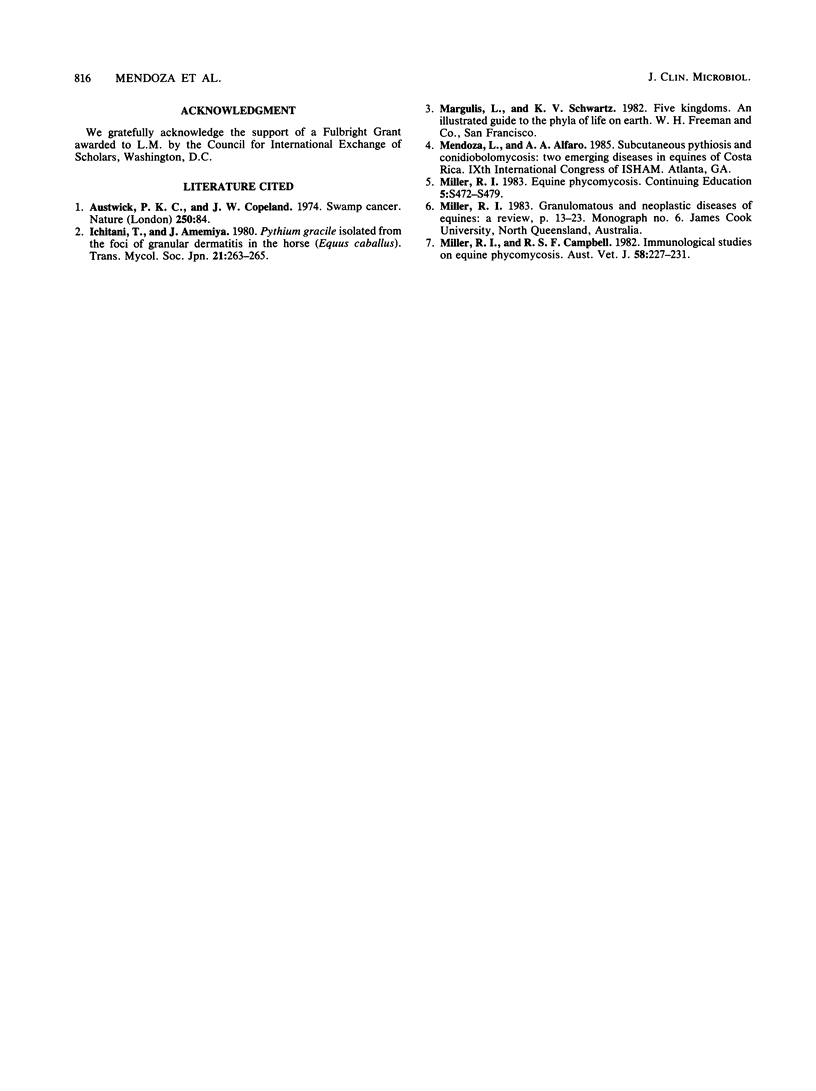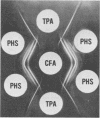Abstract
A practical, sensitive, and specific immunodiffusion test was developed for diagnosing and monitoring pythiosis in horses. Culture filtrates, a soluble cell mass, and trypsinized Pythium sp. antigens were evaluated against prepared rabbit anti-Pythium sp. serum and pythiosis horse case sera. The culture filtrate antigens demonstrated the greatest capacity for detecting precipitins and the greatest stability during storage. In contrast, the trypsinized antigens had the weakest capability for detecting multiple precipitins and the poorest stability. The 13 sera from horses with proven active pythiosis were positive in immunodiffusion tests with the culture filtrate antigens. Each serum contained from three to six precipitins. Treated horses lost precipitins, and some became antibody negative. No false-positive reactions were noted in tests with sera from normal horses and humans or with sera from a variety of heterologous horse and human infections.
Full text
PDF



Images in this article
Selected References
These references are in PubMed. This may not be the complete list of references from this article.
- Austwick P. K., Copland J. W. Swamp cancer. Nature. 1974 Jul 5;250(461):84–84. doi: 10.1038/250084a0. [DOI] [PubMed] [Google Scholar]
- Miller R. I., Campbell R. S. Immunological studies on equine phycomycosis. Aust Vet J. 1982 Jun;58(6):227–231. doi: 10.1111/j.1751-0813.1982.tb00682.x. [DOI] [PubMed] [Google Scholar]



